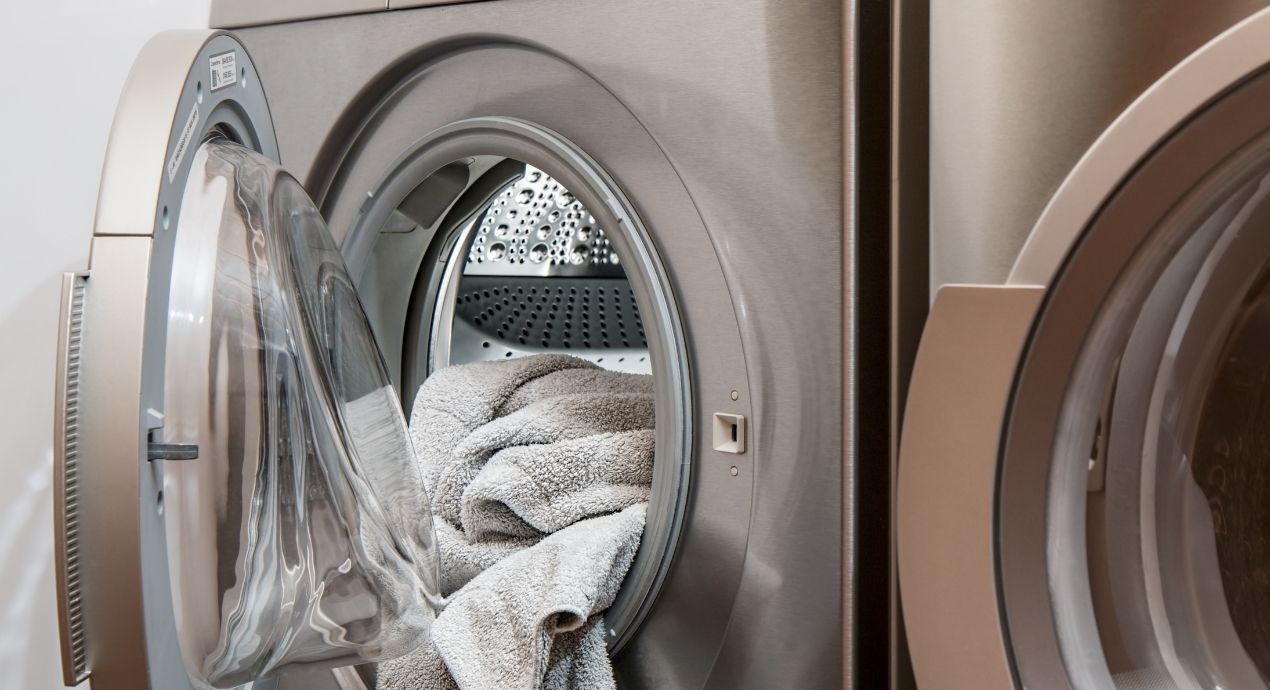
Contemplating coverage?
Subscribe to receive our emails & get
$200 off!
Have questions?
Call us: (833) 544-8273


Written By Erin Easley
Don’t let the damp get you down. If you’re dealing with a clothes dryer not drying completely—or even at all—there are some troubleshooting tips that can resolve your problem in no time.
If you don’t know the first thing about the inner workings of a household dryer, don’t fret. Specialized knowledge is not necessarily required to fix an electric dryer not drying properly.
1. Disconnected Power
If you’re dealing with a clothes dryer not heating, first check that your dryer is drawing power. Does the tumbler spin? Do interior light bulbs or control panel LEDs turn on? Does the motor engage?
If your dryer isn’t drawing any power, check that the power cord is plugged in securely. If that doesn’t solve your problem, check your circuit breaker to ensure the circuit doesn’t need to be reset.
If your dryer still won’t turn on, there could be an internal problem that calls for professional assistance.
2. Clogged Lint Trap
One of the most common causes of dryer trouble is lint buildup. Most lint is collected in a trap or filter, but these need to be regularly cleaned to provide adequate airflow. It’s important to add that failing to clean your lint trap is a significant fire hazard as well.
If your dryer is producing damp clothing despite appearing to function normally and generating heat, lint is your likely problem.
3. Obstructed Vents
A clogged lint trap isn’t the only thing that can cause airflow issues. If clothes are not drying in dryer machines, the problem could be a blocked vent.
Check where the dryer vent exits your home for lint accumulation or other obstructions. You can also use a brush kit or detach the dryer vent from the machine to clean out the inner reaches. It’s not uncommon to discover a sock or other small clothing item in there, which can contribute to inefficient drying.
4. Overloading
It’s tempting to take care of all your laundry in a single load, but overloading your washer or dryer with clothes isn’t a good idea. Wet clothes are heavy, and the excessive weight can damage your machine by straining its mechanical components.
An overly large load of wet clothes in the dryer also results in insufficient drying. A typical dryer cycle isn’t long enough to handle that amount of moisture, and a large load makes it harder for heat to come in contact with all fabric surfaces.
5. Faulty Door Switch
If your dryer is drawing power but won’t start a cycle, you could have a faulty door switch. The door switch is designed to prevent the dryer from operating while the door is open. If it fails for any reason, the dryer is effectively inoperable.
You can test the door switch by manually engaging it and starting a dryer cycle. If the dryer turns on, you likely need to make a small adjustment to your door so the switch engages properly when the door is closed. If the dryer does not turn on, you probably need to replace the door switch. Fortunately, this is inexpensive and easy enough for a reasonably handy person to manage.
6. Broken Drive Belt
Now we’re getting into some more complex components. If you’re encountering a dryer not spinning, there could be a problem with the drive belt. This is an internal component that wraps around the drum.
Before checking any internal components, ensure that your dryer is powered off and unplugged from the wall. Remove the access panel and inspect inside. A fraying or broken belt will be readily apparent. If necessary, contact a professional repairperson to replace the broken drive belt.
7. Malfunctioning Heating Mechanism
If your dryer is powering on, starting a cycle, spinning, but failing to heat up at all, it’s likely that the dryer’s internal heating mechanism is malfunctioning. Someone with a knowledge of electronics can test the heating element with a multimeter to check for continuity. If a replacement is necessary, a new heating element isn’t too expensive.
We haven’t exhausted all potential dryer problems. There could be a faulty thermostat or thermal fuse, or a bad motor or blower wheel, or a malfunctioning control panel.
Most of the time, dryer problems can be resolved by the simple troubleshooting tips described above, but other problems require the attention of a professional technician. That’s when warranty coverage can save the day.
Washer/dryer extended warranty coverage through Liberty Home Guard can cover all mechanical components and parts of your appliances. If you encounter a problem you can’t resolve on your own, simply submit a claim. We’ll take it from there.
To inquire about coverage, use our website for a free quote or call (866)-851-2024.
Stay Ahead of Potential
Home Mishaps!
Subscribe to our Liberty Home Guard Newsletter and gain access to exclusive content that ensures your peace of mind.